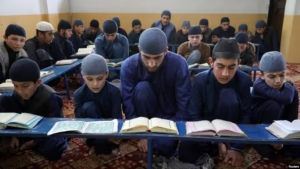The Sixth Trilateral Foreign Ministers Dialogue held today in Kabul represents a watershed moment in South Asian diplomacy, bringing together China’s Foreign Minister Wang Yi, Pakistan’s Deputy Prime Minister and Foreign Minister Ishaq Dar, and Afghanistan’s Acting Foreign Minister Amir Khan Muttaqi. This high-level engagement underscores a renewed commitment to regional stability, economic integration, and collective security through multilateral cooperation.
Security Cooperation Takes Center Stage in Trilateral Dialogue
Counter-terrorism emerged as the primary focus of today’s trilateral dialogue, with all three nations pledging enhanced joint efforts against militant threats. The timing is particularly significant given escalating security concerns along the Pakistan-Afghanistan border and persistent risks to Chinese nationals involved in infrastructure projects. Pakistan urged Afghan authorities to take concrete measures against the Tehrik-i-Taliban Pakistan (TTP) and Balochistan Liberation Army, groups responsible for cross-border attacks and armed insurgency. Afghanistan affirmed its commitment to ensuring that its territory will not be used by any terrorist group against neighboring states, a crucial step toward operational counter-terrorism collaboration.
China has emphasized the importance of these security assurances to protect its Belt and Road Initiative investments. Since 2021, fourteen attacks have targeted Chinese nationals working on the China-Pakistan Economic Corridor (CPEC), raising serious concerns about the East Turkestan Islamic Movement’s activities in the region.
CPEC Extension Opens New Economic Frontiers
A landmark outcome of the trilateral dialogue is the agreement to extend the China-Pakistan Economic Corridor (CPEC) into Afghanistan, transforming it from a bilateral project into a comprehensive regional development framework. This extension promises to integrate Afghanistan’s estimated $1 trillion in mineral resources, including lithium, copper, and iron, into global markets. The expansion offers multiple benefits: Afghanistan gains enhanced access to sea routes via Gwadar Port, China secures critical mineral supplies, and Pakistan reinforces its role as a pivotal trade hub. Existing bilateral trade between Afghanistan and China has already surpassed $1 billion, laying the groundwork for expanded commercial exchanges.
Infrastructure development and transit trade facilitation under the Belt and Road Initiative are expected to drive sustainable economic growth and reduce Afghanistan’s isolation from international markets.
Comprehensive Social and Economic Cooperation
Beyond security and infrastructure, the trilateral dialogue addressed health, education, culture, and drug trafficking prevention. Recognizing that sustainable stability requires social development, the foreign ministers pledged joint action to combat narcotics trafficking, a significant challenge given Afghanistan’s leading role in opium production. They also agreed to promote medical cooperation, establishing joint health programs to combat infectious diseases and improve public health. Educational exchanges and cultural initiatives were highlighted as vital components for fostering mutual understanding and strengthening people-to-people ties across the three nations.
China’s Strategic Mediation and Regional Impact
China’s role as a facilitator in this trilateral mechanism illustrates its growing diplomatic influence. Beijing’s mediation has already led Pakistan and Afghanistan to agree on upgrading their diplomatic relations to ambassadorial level, showcasing tangible diplomatic achievements. China’s engagement advances multiple strategic objectives: protecting its CPEC investments, securing stability along its western borders, accessing Afghanistan’s mineral wealth, and reinforcing its leadership in regional affairs. This proactive diplomacy contrasts with isolationist policies, offering inclusive solutions to complex regional challenges.
Challenges Ahead and Future Prospects
Despite diplomatic progress, implementation hurdles persist. The Taliban’s historical ties with militant groups complicate security cooperation, and Afghanistan’s internal stability concerns pose risks to infrastructure investment. Geopolitical tensions, particularly India’s objections to the CPEC extension through contested territories, add layers of complexity. Nevertheless, the three countries committed to sustaining the trilateral mechanism, recognizing the strategic benefits of regional integration.
The Sixth Trilateral dialogue between Foreign Ministers sets a pragmatic course toward addressing Afghanistan’s multifaceted challenges through cooperation, rather than isolation. Translating diplomatic commitments into actionable measures, especially in counter-terrorism, infrastructure projects, and social development, will be key to the lasting success of this trilateral framework.







